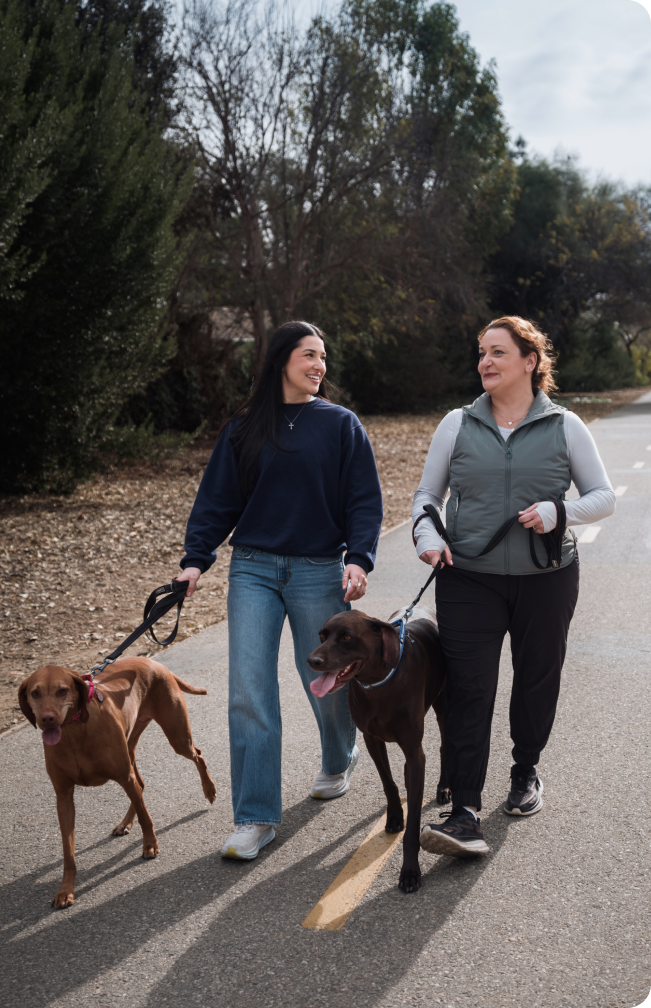Post-Surgery
The easy part is over
Pain after surgery is normal. Heck, that’s just your body’s way of saying, ‘Hey, we’re healing here!’
Your care team will work to help you get the comfort you need.

“Recovery isn’t weakness.
It’s rebuilding!”
Zimmer Biomet Chief Movement Officer

A real Personalized Knee® experience
Surgery’s done. Recovery’s on. Here’s what to expect
Post-surgery expectations
- Pain—what’s normal and what’s not?
Knee replacement often eases pain, but discomfort is normal post-surgery. Staying in touch with your care team can help you manage it and move forward. - Pain medication
After surgery, you may be prescribed medications like opioids, NSAIDs, acetaminophen, or local anesthetics for short-term pain relief. Your doctor might combine these—or use nerve blocks—to improve comfort and reduce the need for opioids. Talk with your care team about what’s right for you. - Get moving, you’ll feel better
Staying active after knee replacement is key. Gentle movement early on keeps your joint moving smoothly. Most patients start exercises within hours of surgery—with a physical therapist guiding the way back to daily life.
Post-surgery warning signs
Post-surgical complications can happen
- Signs of a blood clot
Blood clots can occur after knee surgery. Call your doctor right away if you notice new redness, swelling, or pain in your calf, ankle, or foot—these could be warning signs. - Sudden changes
If you experience a sudden shortness of breath, chest pain, or pain that worsens with coughing, call 911 and alert your doctor. These could be signs that a blood clot has travelled to your lungs. - Warning signs of infection
Call your doctor if you are experiencing persistent fever, chills, increasing redness, swelling, or drainage from your knee wound; it may mean an infection. - Be proactive and report symptoms early.

A real Personalized Knee® experience with caregiver
We all need someone we can lean on
It’s important to have a solid support system after you receive your new knee procedure. Below are a few tips that could help.
Prepare with a team mindset:
Work with your medical team to understand what’s needed for recovery. Ask questions, review your discharge plan, and get clear on medications and mobility expectations.
Build a support system:
Arrange help with meals, meds, transportation, and daily tasks. Local resources like senior centers may also offer equipment and social support.
Support your supporters:
Encourage caregivers to take breaks and seek support—because a cared-for caregiver is your best recovery partner.
